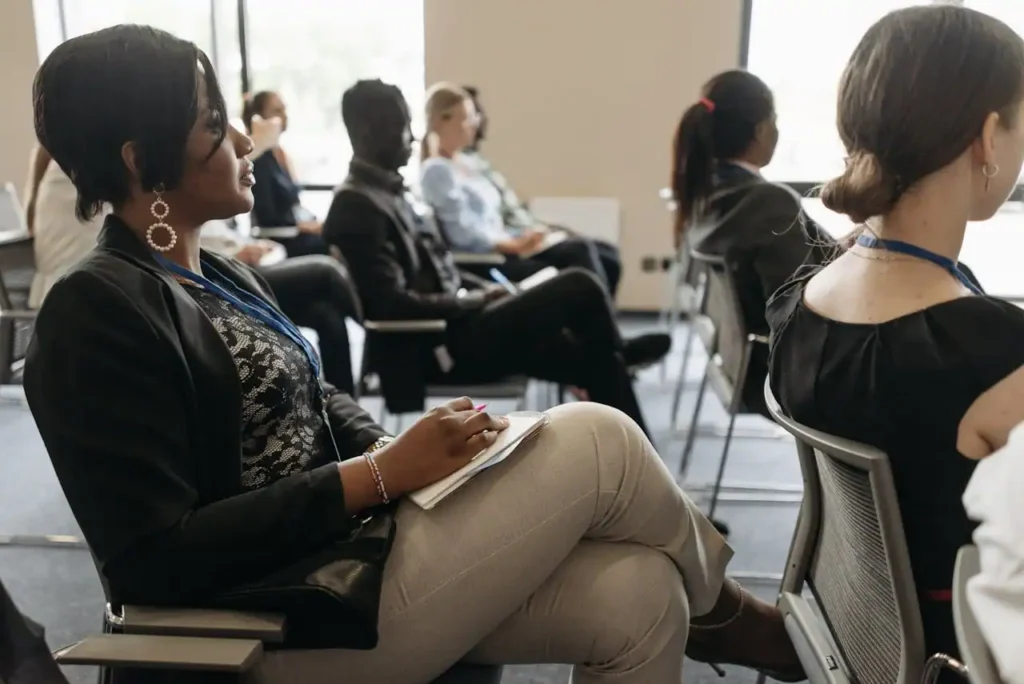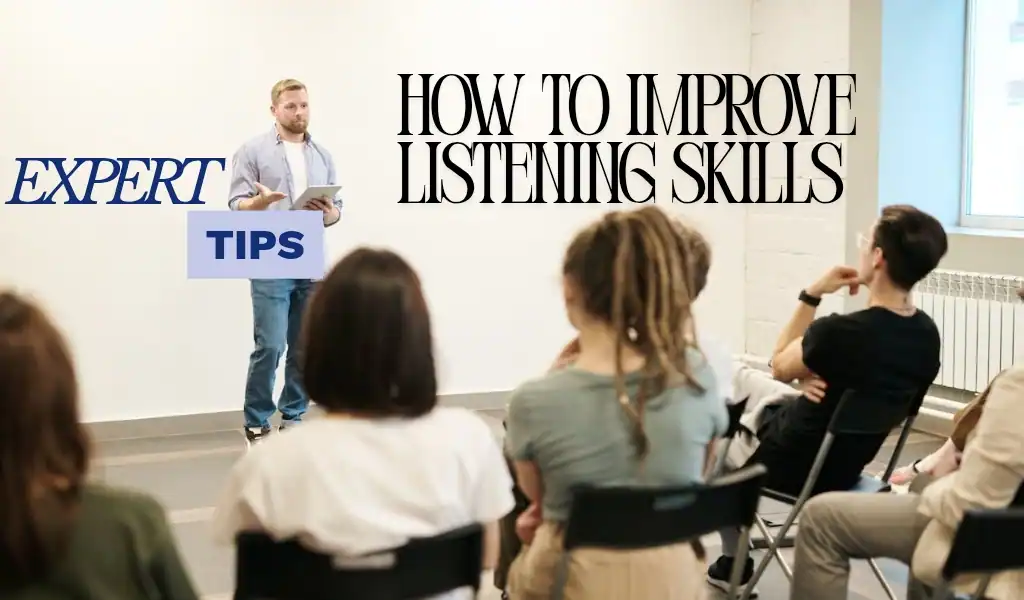10 Best Steps How to Improve Listening Skills
What is Listening
“Active listening entails the listener’s involvement in learning for intellectual and emotional messages. The listening focus is with what the person in saying, while confirming the accuracy of the content and effect of the message”.
“Active listening is the practice of preparing to listen, observing what verbal and non-verbal messages are being sent and then providing appropriate feedback for the sake of showing attentiveness to the message being presented. This form of listening conveys a mutual understanding between speaker and listener”. – Wikipedia
What are the key traits of active listening?
There are five key traits of active listening:
1. Paying full attention.
2. Showing that you are listening through body language and gestures.
3. Providing feedback about their problem and pain.
4. Avoiding interruptions.
5. Responding appropriately.
What are the Stages of Listening?
• Stage of Motivation to listen
• Stage of understanding
• Stage of evaluating
• Stage of responding
• Stage of remembering
What are The strategies of effective listening?
• Preparation for listening
• Absorbing the message
• Capturing the content
• Review of Speech content
How to Improve Listening Skills?
The following are the steps that will help you to improve your listening skills and will help you to comprehend the exact message that the speaker is conveying.
- Be motivated to listen: It is said that the person with more information is generally the one in control of a talk. So, it is necessary to listen to people. It is also suggested that goals should be set for the quantity and category of information you would like to receive from other people. The more you are listening, the more you will get the information to analyze the situation.
- 2. If you must speak, ask questions: To get precise and required information and discover your speaker’s need and purpose of conveying his message to you, sometimes, you can ask questions to clarify the doubts. By moving ahead the questions can be from broad to narrow, you can ultimately obtain the specific information that you require to make the finest choice about further process.
- 3. Be alert to nonverbal cues: Although it is extremely important to listen to what the other person says, similarly it is necessary to realize the mindset and intention of the speaker’s dialogues. A person in a conversation doesn’t usually put his entire message into words.
- 4. First, listen, and then speak: Many professionals even have realized the significance of this suggestion in a hard way. Let the speaker speak first, then you might have got a chance to edit his key points and tailor his presentation to your needs.
- 5. Do not interrupt when someone is speaking: Interrupting is considered rude behaviour especially when a serious conversation is going on. It may prevent them from giving information that could be significant later in the conclusion. Even in a conversation, if someone says something you think that is inappropriate; let his first finish with the idea. You will many times identify that we get the most vital information in a conversation when someone differs with you or explains a surprising concept. Therefore, to get worthy insights from others we need to listen carefully and avoid interruption.

- 6. Fight off distractions: A continuous flow of conversation is distracted and cannot smoothly proceed if there is a disturbance from someone or a phone call. Sometimes this may cause a big setback. Especially, when a serious point is discussing on, try to create an environment in which you can think clearly, and avoid interruptions. There are various kinds of distractions -like your colleagues, peers, and phone messages, which force your eye to go off the goal.
- 7. Do not trust your memory: In every professional environment whenever you are discussing important issues, it is better to write it down. The talent to refresh the other person’s memory with related data and facts discussed in a previous counselling meeting will earn you a large amount of reliability and influence. Though writing things down may take more time than usual, but the outcome is surely beneficial.
- 8. Try to maintain eye contact: “Eyes are the windows to the soul”. The study has proved that the one who looks into your eye during a conversation is considered dependable, truthful, and realistic. If you want people to trust you hence, forward, what you need to show them that you possess these skill sets. So always look into the eye giving your complete concentration. Furthermore, many experts have found that with careful attention, they can tell what someone is thinking and feeling. What notes are people’s eyes conveying? Are they double-dealing or showing genuineness? Are they anxious and desperate to complete the talks? Watchfulness and sincere study surely makes one find out things a person wants to say—verbally and nonverbally.
- 9. React to the message, not to the person: It is necessary to realize why people say the things they want to say and do the things they want to do. Many professors who studied the human mind worldwide say, “Individuals do what they think, they have to do to get what they think they want.” Everybody in a conversation is trying to change the relationship as per their top priority. If the other person says something you don’t appreciate, ask yourself, would you do the same thing, if you were in his place? By any chance you need to react negatively to someone’s words, always take care that you are opposing the idea, not the individual.
- 10. It is impossible to listen and speak at the same time: Imagine a real-time conversation between two or more people in a war. It is necessary to speak at some of the other point so the others can even help you to meet your goals, but first, learn the other person’s approach. Armed with this information, you can easily conclude with logical ideas. And when you get rational inferences, you are the one in the driver’s seat; in other words, you are acting and the other person is reacting.
Final Thought:
These are above best tips on how to improve listening skills. Follow the above mentioned tips provided by experts that will definitely improve listening skills.
You May Like to Read More:
- Scope to Make Career in Computer Science Engineering
- How to Develop Reading Skills in Students
- Eiffel Excellence Scholarship Programs
- How to Get UK Student Visa
- How to Write Cover Letter for Job Application
- How to Get Scholarships to Study Abroad
- How to Improve Vocabulary in English
Career Opportunities
- Career Opportunities in Chemistry
- Career in Aerospace Engineering
- Career in Agriculture Engineering
- How to Become an Air Hostess
English Literature
